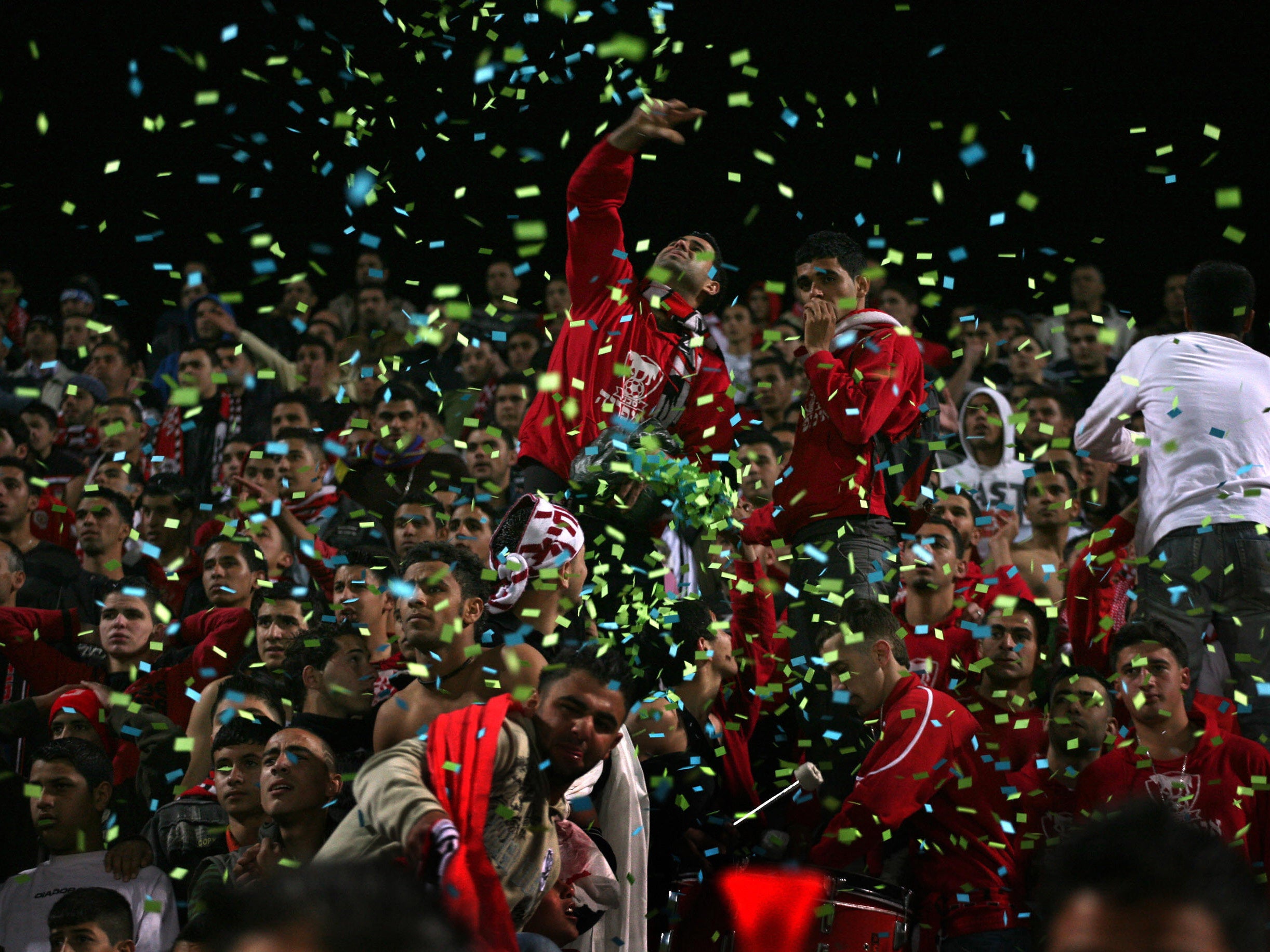In an age of wall building, Israelis and Palestinians find bonding experiences in unexpected places
From the football pitch to hospital corridors, the unusual settings where joys and sorrow bring people on different sides of the Arab-Israeli conflict together

FC Bnei Sakhnin, one of the Israeli Premier League’s smaller teams, deserves its scrappy reputation: it’s the only Arab team playing in the country’s top tier football league.
Sakhnin in Israel’s north has an Arab majority population and is home to several high-profile community building initiatives, such as its Qatari-funded Doha Football Stadium.
The quiet town, nestled in a valley of olive groves, is a shining example of what is possible when Arab and Jewish communities are able to overcome their differences.
The club is both managed and chaired by Jewish men, and Jewish players are welcome on the team although most of the current players are Arab.
The team’s coach says the footballers see each other as brothers – even if they usually have to communicate in English rather than Hebrew or Arabic.
“The football club really is one of the best ways I’ve ever seen Israelis and Palestinians bond,” says Gal Zarbiv, a spokesperson for the local Abraham Fund Initiatives, an NGO that is building a shared future for Israel’s Jewish and Arab citizens.
“The kids that come out to see the matches – that level of integration is normalised for them,” she adds.
While some 20 per cent of the country’s 8.5 million population is Arab, the two peoples often live almost parallel existences.
Segregation is widespread – there are only five bilingual schools teaching in Hebrew and Arabic in the whole country – and while Israel is one of the fastest growing developed economies in the world, the Arab population often doesn’t see a slice of the cake. The proportion of Arab Israelis living in poverty currently stands at 49 per cent.
While Sakhnin is a good example of what can be achieved in Israel, the West Bank security wall looms large across much of the country, a physical barrier to integration.
Since construction began in the 2000s as an attempt to curb the violence of the Second Intifada, people on both sides of the conflict have said there is less and less interaction between the two communities, fuelling the fear Israelis and Palestinians have of each other. Opportunities to break those barriers down and for Arabs and Israelis to meet face to face are becoming rarer.
One of the less intuitive places mixed friendships are formed and connections made is in hospital rooms: where life and death meet, so too do people with seemingly irreconcilable differences.
While the barriers can be formidable, many Palestinians travel to Israel for specialised medical treatment which the West Bank and Gaza’s teetering healthcare systems cannot provide. There, they encounter Israeli medical staff who nurse them back to health and comfort the sick and dying.
In Israel, where medicine is increasingly the career of choice for middle class Arabs, more and more Muslim doctors are working in clinics and hospitals where they may only see Jewish patients.
“I am greeted with a lot of respect,” Doctor Mahmoud Abo Salwook, an endocrinologist working in the ultra-Orthodox Tel Aviv neighbourhood of Bnei Brak, told news organisation the Christian Science Monitor.
There are still many difficulties to overcome: a report in 2016 which alleged some hospitals were accommodating Jewish women’s requests for segregated maternity wards caused an outcry. Bnei Sakhnin’s players are targeted for harassment by fans of rival clubs off the pitch, and often met with anti-Muslim banners and chants during matches.
“Coexistence when there’s so much pain and anger does not happen overnight,” Ms Zarbiv said. “The quiet, normal things can be just as important.”
Join our commenting forum
Join thought-provoking conversations, follow other Independent readers and see their replies
Comments
Bookmark popover
Removed from bookmarks